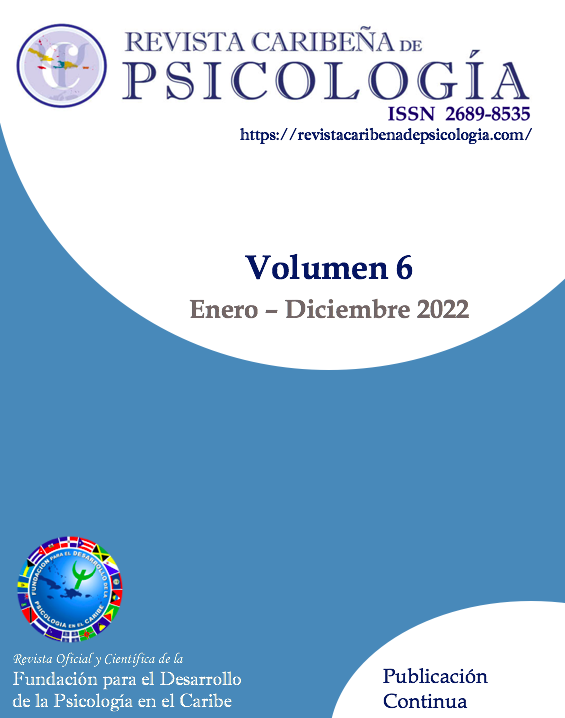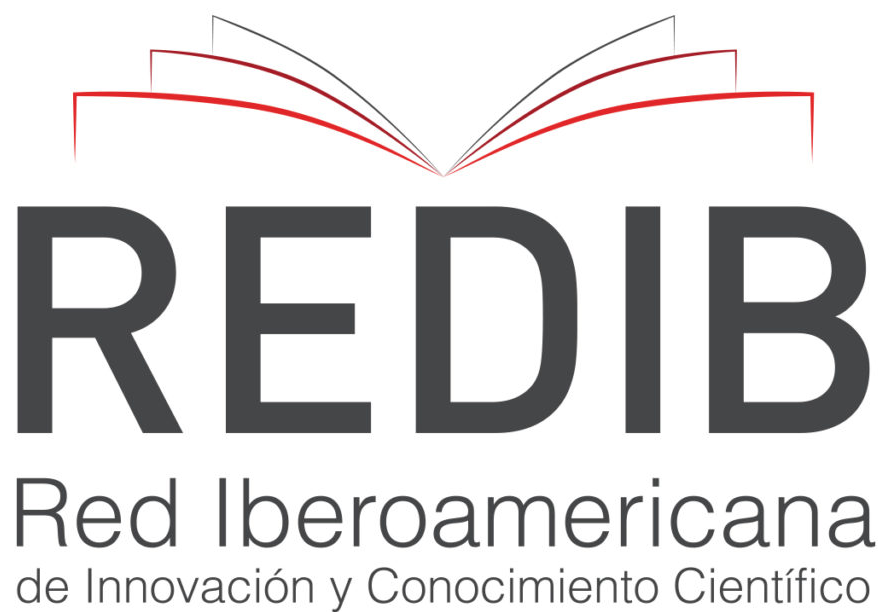Análisis de las Propiedades Psicométricas de la versión en español del Authentic Leadership Questionnaire (ALQ)
DOI:
https://doi.org/10.37226/rcp.v6i1.6321Palabras clave:
liderazgo auténtico, psicometría, mediciónResumen
El liderazgo auténtico puede mejorar el compromiso laboral, los comportamientos de ciudadanía organizacional y el capital psicológico, entre otros. Para estudiar este constructo es necesario tener herramientas cuyos resultados sean válidos y confiables. Por tal razón, el objetivo principal de este estudio fue analizar las propiedades psicométricas de la versión en español del Authentic Leadership Questionnaire (ALQ, versión 1 Evaluador, 2007) en el contexto laboral puertorriqueño. Para cumplir con este objetivo, se utilizó una muestra heterogénea de 446 trabajadores de distintos sectores laborales de Puerto Rico. Este estudio empleó un método cuantitativo, con un diseño instrumental mediante el análisis secundario de datos. Los hallazgos revelan que la escala no cumple con los criterios de validez discriminante entre sus factores para ser utilizada en la población puertorriqueña.
Citas
Abdelwahid, A. (2020). Workplace trust and authentic leadership as predictors of work-related bullying among staff nurses. In-ternational Journal of Nursing Education, 12(1), 90–95. https://doi.org/10.37506/ijone.v12i1.3700
Adil, A., Kamal, A., & Shujja, S. (2019). Perceived authentic lead-ership in relation to in-role and extra-role performance: A job demands and resources perspective. Journal of Behavioural Sci-ences, 29(1), 53–71. http://pu.edu.pk/images/journal/doap/PDF-FILES/05_V29-1-2019.pdf
Akbar, F., Ali, Z., & Ahmad, I. (2019). Validation of Authentic Leadership Questionnaire in Pakistani Context: Evidence form Higher Education Institutions of Khyber Pakhtunkhwa. Abasyn University Journal of Social Sciences, 12(1), 88–99. https://doi.org/10.34091/AJSS.12.1.08
Avolio, B. J. & Gardner, W. L. (2005). Authentic leadership devel-opment: Getting to the root of positive forms of leadership. The Leadership Quarterly, 16(3), 315–338. https://doi.org/10.1016/j.leaqua.2005.03.001
Avolio, Gardner & Walumbwa (2007). Authentic Leadership Ques-tionnaire (ALQ). Mind Garden.
Avolio, B. J., Gardner, W. L., Walumbwa, F. O., Luthans, F., & May, D. R. (2004). Unlocking the mask: a look at the process by which authentic leaders impact follower attitudes and be-haviors. The Leadership Quarterly, 15(6), 801–823. https://doi.org/10.1016/j.leaqua.2004.09.003
Ayça, B. (2019). The impact of authentic leadership behavior on job satisfaction: A research on hospitality enterprises. Procedia Computer Science, 158, 790–801. https://doi.org/10.1016/j.procs.2019.09.116
Azanza, G., Gorgievski, M., Moriano, J., & Molero, F. (2018). Influ-encing salespeople’s work outcomes through authentic lead-ership. Leadership & Organization Development Journal, 39, 926-944. http://doi.org/10.1108/LODJ-05-2017-0113
Bass, B. M. (1997). Does the transactional–transformational lead-ership paradigm transcend organizational and national boundaries? American Psychologist, 52(2), 130–139. https://doi.org/10.1037%2F0003-066X.52.2.130
Beddoes-Jones, F. & Swailes, S. (2015). Authentic leadership: de-velopment of a new three pillar model. Strategic HR Review, 14(3), 94–99. https://doi.org/10.1108/SHR-04-2015-0032
Byrne, B. M. (2016). Structural equation modeling with AMOS: Basic concepts, applications, and programming (3rd ed). Psychology Press.
Calderón-Mafud, J. L., Moreno, M. P., Beltrán, C. A., & Verduzco Cervantes, Y. G. (2020). Efectos del liderazgo auténtico en la salud mental positiva ocupacional. Uaricha 7, 29-38. http://www.revistauaricha.umich.mx/index.php/urp/article/view/265
Černe, M., Dimovski, V., Marič, M., Penger, S., & Škerlavaj, M. (2014). Congruence of leader self-perceptions and follower perceptions of authentic leadership: Understanding what au-thentic leadership is and how it enhances employees’ job sat-isfaction. Australian Journal of Management, 39(3), 453–471. https://doi.org/10.1177/0312896213503665
Černe, M., Jaklič, M. & Škerlavaj, M. (2013). Authentic leader-ship, creativity, and innovation: A multilevel perspective. Leadership, 9(1), 63-85. https://doi.org/10.1177/1742715012455130
DeVellis, R. F. (2016). Scale Development: Theory and Applications (4th ed.). Los Angeles: Sage Publications, Inc.
Doornik, J. A. & Hansen, H. (2008). An omnibus test for univari-ate and multivariate normality. Oxford Bulletin of Economics and Statistics, 70, 927–939. https://doi.org/10.1111/j.1468-0084.2008.00537.x
Ebel, R. & Frisbie, D. (1986). Essentials of Education Measurement. Prentice Hall. Edelman. 2021. 2021 Edelman Trust Barometer. https://www.edelman.com/trust/2021-trust-barometer/
Eliason, S. R. (1993). Maximum likelihood estimation: Logic and prac-tice. Sage Publications, Inc.
Fornell, C. & Larcker, D. F. (1981). Evaluating Structural Equation Models with Unobservable Variables and Measurement Error. Journal of Marketing Research, 18(1), 39-50. https://doi.org/10.1177/002224378101800104
Frei, F. & Morriss, A. (2020). Begin with trust: The first step to becoming a genuinely empowering leader. Harvard Business Review, 98(3), 112. https://hbr.org/2020/05/begin-with-trust
García-Guiu López, C., Molero Alonso, F., Moya Morales, M., & Moriano León, J. A. (2015). Authentic leadership, group cohe-sion and group identification in security and emergency teams. Psicothema, 27(1), 59–64. https://doi.org/10.7334/psicothema2014.161
Gardner, W. L., Avolio, B. J., Luthans, F., May, D. R., & Walumb-wa, F. (2005). “Can you see the real me?” A self-based model of authentic leader and follower development. The Leadership Quarterly, 16(3), 343–372. https://doi.org/10.1016/j.leaqua.2005.03.003
Gardner, W. L., Avolio, B. J., & Walumbwa, F. O. (2005). Authentic Leadership Theory and Practice: Origins, Effects and Development (1st ed.). Emerald Group Publishing Limited.
Gardner, W. L., Cogliser, C. C., Davis, K. M., & Dickens, M. P. (2011). Authentic leadership: A review of the literature and research agenda. The Leadership Quarterly, 22(6), 1120–1145. https://doi.org/10.1016/j.leaqua.2011.09.007
Giallonardo, L. M., Wong, C. A., & Iwasiw, C. L. (2010). Authen-tic leadership of preceptors: Predictor of new graduate nurs-es’ work engagement and job satisfaction. Journal of Nursing Management, 18(8), 993–1003. https://doi.org/10.1111/j.1365-2834.2010.01126.x
Gill, C. & Caza, A. (2018). An investigation of authentic leader-ship’s individual and group influences on follower responses. Journal of Management, 44(2), 530–554. https://doi.org/10.1177%2F0149206314566461
Hannah, S. T., Avolio, B. J., & Walumbwa, F. O. (2011). Relation-ships between Authentic Leadership, Moral Courage, and Ethical and Pro-Social Behaviors. Business Ethics Quarterly, 21(4), 555–578. https://doi.org/10.5840/beq201121436
Harter, S. (2002). Authenticity. In C. R. Snyder & S. J. Lopez (Eds.), Handbook of positive psychology (pp. 382–394). Oxford University Press.
Hermans, C. A. M. (2020). Spirituality in Leadership. Research into Schools, Congregations and the Workplace. Acta Theologi-ca, 40, 1–4. https://doi.org/10.18820/23099089/actat.Sup30.introduction
Hernández, E. (2018). Psychological capital and affective organiza-tional commitment as predictors of authentic leadership in rotary club members [Doctoral dissertation, Our Lady of the Lake University]. ProQuest Information & Learning.
Ilies, R., Morgeson, F. P., & Nahrgang, J. D. (2005). Authentic leadership and eudaemonic well-being: Understanding lead-er–follower outcomes. The Leadership Quarterly, 16(3), 373–394. https://doi.org/10.1016/j.leaqua.2005.03.002
İşlek, A. E. & İyigün, N, O. (2021). The relationship between au-thentic leadership and entrepreneurship orientation percep-tions in exporting companies with different export perfor-mances. International Journal of Commerce and Finance, 7(1), 51–61. http://ijcf.ticaret.edu.tr/index.php/ijcf/article/view/240/pdf_145
Iszatt-White, M. & Kempster, S. (2019). Authentic leadership: Getting back to the roots of the “root construct”? International Journal of Management Reviews, 21(3), 356. https://doi.org/10.1111/ijmr.12193
Jensen, S. M. & Luthans, F. (2006). Entrepreneurs as authentic leaders: impact on Employees’ attitudes. Leadership & Organi-zation Development Journal, 27(8), 646–666. Https://doi.org/10.1108/01437730610709273
Johnson, A. S. (2019). Personality traits and behavioural style dimen-sions as predictors of authentic leadership in American leaders [Doc-toral dissertation, Grand Canyon University]. ProQuest In-formation & Learning.
Kampa, J., Rigotti, T., & Otto, K. (2017). Mechanisms linking au-thentic leadership to emotional exhaustion: The role of pro-cedural justice and emotional demands in a moderated medi-ation approach. Industrial Health, 55(2), 95. https://doi.org/10.2486/indhealth.2016-0046
Kernis, M. H. (2003). Toward a Conceptualization of Optimal Self-Esteem. Psychological Inquiry, 14(1), 1. https://doi.org/10.1207/S15327965PLI1401_01
Kim, M., Kim, Y. D., & Lee, H. W. (2020). It is time to consider athletes’ well-being and performance satisfaction: The roles of authentic leadership and psychological capital. Sport Man-agement Review, 23(5), 964–977. https://doi.org/10.1016/j.smr.2019.12.008
Kiyani, K., Saher N., Saleem S. & Iqbal M. (2013). Emotional Intel-ligence and employee outcomes: The mediating effect of au-thentic leadership style. Interdisciplinary Journal of Contempo-rary Research in Business, 5(1), 394-405. https://journal-archieves32.webs.com/394-405.pdf
Kline, T. J. B. (2005). Psychological testing: A practical approach to design and evaluation. Sage. https://doi.org/10.4135/9781483385693
Lee, C. S. (2018). Authentic leadership and organizational effec-tiveness: The roles of hope, grit, and growth mindset. Interna-tional Journal of Pure and Applied Mathematics, 118(19), 383–40. https://acadpubl.eu/jsi/2018-118-19/articles/19a/27.pdf
Lei, S., Qin, C., Ali, M., Freeman, S., & Shi-Jie, Z. (2021). The im-pact of authentic leadership on individual and team creativi-ty: a multilevel perspective. Leadership & Organization Devel-opment Journal, 42(4), 644-662. https://doi.org/10.1108/LODJ-12-2019-0519
Leigh, J. (2014). Modelling suggests authentic leadership from managers influences structural empowerment, job satisfac-tion and self-rated performance among nurses. Evidence-Based Nursing, 17(2), 55–56. https://doi.org/10.1136/eb-2013-101424
Levesque-Cote, J., Fernet, C., Austin, S., & Morin, A. J. S. (2018). New wine in a new bottle: Refining the assessment of au-thentic leadership using exploratory structural equation modeling (ESEM). Journal of Business and Psychology, 33(5), 611. https://doi.org/10.1007/s10869-017-9512-y
Lisbona, A., Las Hayas, A., Palací, F. J., & Frese, M. (2021). Initia-tive in Work Teams: Lever between Authentic Leadership and Results. International Journal of Environmental Research and Public Health, 18(9). https://doi.org/10.3390/ijerph18094947
Luthans, F. & Avolio, B. J. (2003). Authentic leadership develop-ment. In K. S. Cameron, J. E. Dutton & R. E. Quinn (Eds.), Positive Organizational Scholarship (1st ed., pp., 241-258). Ber-rett-Koehler Publishers.
Magallanez, D. N. (2019). Exploring the relationship between authen-tic leadership and job satisfaction of special education educators in Texas [Doctoral dissertation, Our Lady of the Lake Universi-ty]. ProQuest Information & Learning.
Maximo, N., Stander, M. W., & Coxen, L. (2019). Authentic lead-ership and work engagement: The indirect effects of psycho-logical safety and trust in supervisors. SAJIP: South African Journal of Industrial Psychology, 45, 1–11. https://doi.org/10.4102/sajip.v45i0.1612
May, D. R., Chan, A. Y. L., Hodges, T. D., & Avolio, B. J. (2003). Developing the moral component of authentic leadership. Organizational Dynamics, 32(3), 247–260. https://doi.org/10.1016/S0090-2616(03)00032-9
McAuliffe, N., Bostain, N. S., & Witchel, A. D. (2019). The rela-tionship between authentic leadership, trust, and engage-ment in library personnel. Journal of Library Administration, 59(2), 129–148. https://doi.org/10.1080/01930826.2018.1562822
Miao, C., Humphrey, R. H., & Qian, S. (2018). Emotional intelli-gence and authentic leadership: A meta-analysis. Leadership & Organization Development Journal, 39(5), 679–690. https://doi.org/10.1108/LODJ-02-2018-0066
Mondini, D. C. C. da S., Cunha, O. I. C. K., Trettene, D. S. A., Fontes, B. C. M., Bachega, M. I., & Cintra, R. F. M. (2020). Au-thentic leadership among nursing professionals: knowledge and profile. Revista Brasileira de Enfermagem, 73(4), 1–7. https://doi.org/ghbwzc
Montero, I. & León, O. G. (2007). A guide for naming research studies in Psychology. International Journal of Clinical and Health Psychology, 7(3), 847-862. https://www.redalyc.org/articulo.oa?id=33770318
Monzani, L., Knoll, M., Giessner, S., Van Dick, R., & Peiró, J. (2019). Between a rock and hard place: Combined effects of authentic leadership, organizational identification, and team prototypicality on managerial prohibitive voice. The Spanish Journal of Psychology, 22. https://doi.org/10.1017/sjp.2019.1
Morenammele, J. M. & Schoeman, W. J. (2020). Exploring chris-tian leadership in parachurch organizations in Lesotho. Acta Theologica, 40, 86–112. https://doi.org/ghs9j9
Moriano, J. A., Molero, F., & Lévy Mangin, J.-P. (2011). Liderazgo auténtico. Concepto y validación del cuestionario ALQ en España. Psicothema, 23(2), 336–341. https://www.psicothema.com/pdf/3891.pdf
Neider, L. L. & Schriesheim, C. A. (2011). The Authentic Leader-ship Inventory (ALI): Development and empirical tests. The Leadership Quarterly, 22(6), 1146–1164. https://doi.org/10.1016/j.leaqua.2011.09.008
Norman, S. M., Avolio, B. J., & Luthans, F. (2010). The impact of positivity and transparency on trust in leaders and their per-ceived effectiveness. The Leadership Quarterly, 21(3), 350–364. https://doi.org/10.1016/j.leaqua.2010.03.002
Olaniyan, O. S. & Hystad, S. W. (2016). Employees’ psychological capital, job satisfaction, insecurity, and intentions to quit: The direct and indirect effects of authentic leadership. Journal of Work and Organizational Psychology, 32(3), 163–171. https://doi.org/gdwpqc
Pioli, B. L. T., Feuerschutte, S. G., Tezza, R., & Cancellier, E. L. P. L. (2020). Authentic leadership: Scientific production analysis and measurement scales. Revista de Administracao Mackenzie, 21(3). https://doi.org/10.1590/1678-6971/eRAMG200126
Poku, I. K. & Yang, Y. J. (2020). Authentic leadership and citizen-ship behavior: A path through fairness and belongingness. In-ternational Journal of Organization Theory & Behavior, 23(3), 245–258. https://doi.org/10.1108/IJOTB-08-2018-0091
Qureshi, M. A. & Hassan, M. (2019). Authentic leadership, ethical climate & workplace incivility: How authentic leadership prevents deviant work behavior-a case from Pakistan. Abasyn University Journal of Social Sciences, 12(1), 144–163. https://doi.org/10.34091/AJSS.12.1.13
R Core Team. (2016). R: A Language and Environment for Statistical Computing. https://www.R-project.org/
Rašković, M. (2014). Measuring Culture Effect Size Differences in Slovenian and Portuguese Leadership Practices: Cross-Cultural Leadership Universality or Contingency? South East European Journal of Economics & Business, 8(2), 7–15. https://doi.org/10.2478/jeb-2013-0004
Raziq, K., Kayani, M. M., & Mahmood, A. (2019). Relationship of Balanced Processing and Relational Transparency of Authen-tic Leadership with Job Satisfaction of University Teachers. Dialogue, 14(3), 173–183. https://qurtuba.edu.pk/thedialogue/The%20Dialogue/14_3/20.pdf
Regan, S., Laschinger, H. K. S., & Wong, C. A. (2016). The influ-ence of empowerment, authentic leadership, and profession-al practice environments on nurses’ perceived interprofes-sional collaboration. Journal of Nursing Management, 24(1), E54. https://doi.org/10.1111/jonm.12288
Rego, A., Sousa, F., Marques, C., & Cunha, M. P. E. (2012). Au-thentic leadership promoting employees’ psychological capital and creativity. Journal of Business Research, 65(3), 429–437. https://doi.org/10.1016/j.jbusres.2011.10.003
Ribeiro, N., Duarte, A. P., Filipe, R., & Torres de Oliveira, R. (2020). How authentic leadership promotes individual creativity: The mediating role of affective commitment. Journal of Leader-ship & Organizational Studies, 27(2), 189–202. https://doi.org/ghbw3w
Rodríguez Montalbán, R. (2019). Authentic Leadership Questionnaire [Unpublished raw data].
Román-Cabán, Y., Martínez-Lugo, M., & Rodríguez-Montalbán, R. (2021). Análisis de las propiedades psicométricas de la Esca-la de Autoeficacia en el Trabajo en una muestra de personas empleadas en Puerto Rico. Revista Caribeña De Psicología, 5(1), e5367. https://doi.org/10.37226/rcp.v5i1.5367
Rosseel, Y. (2012). Lavaan: An R package for structural equation modeling. Journal of Statistical Software, 48(2), 1–36. https://doi.org/10.18637/jss.v048.i02
Satorra, A. & Bentler, P. M. (2001). A scaled difference chi-square test statistics for moment structure analysis. Psychometrika, 66, 507-514. https://doi.org/10.1007/BF02296192
Sengupta, S., Sharma, S., & Singh, A. (2021). Authentic leadership fostering creativity in start-ups: Mediating role of work en-gagement and employee task proactivity. Business Perspectives & Research, 9(2), 235–251. https://doi.org/gnwxt8
Sepeng, W., Stander, M. W., Van Der Vaart, L., & Coxen, L. (2020). Authentic leadership, organizational citizenship be-haviour and intention to leave: The role of psychological capi-tal. SAJIP: South African Journal of Industrial Psychology, 46, 1–10. https://doi.org/10.4102/sajip.v46i0.1802
Shahzad K., Raja, U. & Hashmi, S., D. (2020). Impact of Big Five personality traits on authentic leadership. Leadership & Organ-ization Development Journal, 42(2), 208–218. https://doi.org/10.1108/LODJ-05-2019-0202
Schumacker, R. E. & Lomax, R. G. (2010). A beginner’s guide to structural equation modeling (3rd ed). Routledge.
Srivastava, A. P. & Shree, S. (2019). Development of Inclusive Education Theoretical Model: Role of authentic leadership academic optimism and art-based pedagogies. International Journal of Educational Management, 33(6), 1271–1290. https://doi.org/10.1108/IJEM-02-2019-0063
Simms, S. C. (2021). Authentic leadership’s effects on leadership confi-dence and employee engagement at us non-profits [Doctoral disser-tation, Northcentral University]. ProQuest Information & Learning.
Stander, F. W., de Beer, L. T., & Stander, M. W. (2015). Authentic leadership as a source of optimism, trust in the organization and work engagement in the public health care sector. South African Journal of Human Resource Management, 13(1), 1–12. https://doi.org/10.4102/sajhrm.v13i1.675
Towsen, T., Stander, M. W., & van der Vaart, L. (2020). The rela-tionship between authentic leadership, psychological em-powerment, role clarity, and work engagement: evidence from South Africa. Frontiers in Psychology, 11. https://doi.org/10.3389/fpsyg.2020.01973
Walumbwa, F. O., Avolio, B. J., Gardner, W. L., Wernsing, T. S., & Peterson, S. J. (2008, February 1). Authentic leadership: de-velopment and validation of a theory-based measure. Journal of Management, 34(1), 89. https://doi.org/10.1177/0149206307308913
Whitehead, G. (2009). Adolescent Leadership Development: Building a Case for an Authenticity Framework. Educational Management Administration & Leadership, 37(6), 847–872. https://doi.org/10.1177/1741143209345441
Wong, C., Walsh, E. J., Basacco, K. N., Mendes Domingues, M. C., & Pye. D. R.H. (2020). Authentic leadership and job satisfac-tion among long-term care nurses. Leadership in Health Services, 33(3), 247–263. https://doi.org/10.1108/LHS-09-2019-0056
Yanes, L. D. (2021). The relationship between self-rated spirituality and authentic leadership among working professionals [Doctoral disser-tation, Our Lady of the Lake University]. ProQuest Infor-mation & Learning.
Descargas
Publicado
Cómo citar
Número
Sección
Licencia
Derechos de autor 2022 Roxanna Figueroa Justiniano, Ramón Rodríguez Montalbán, Adam Rosario Rodríguez

Esta obra está bajo una licencia internacional Creative Commons Atribución 4.0.







